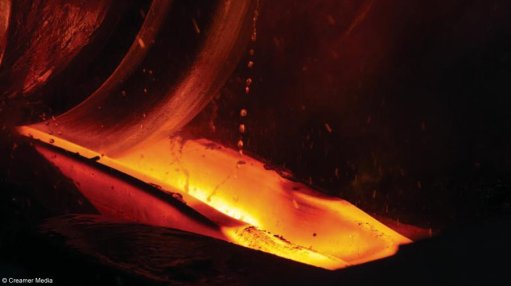Marijuana testing in the workplace: A necessity for safety-sensitive industries
This article has been supplied.
By Rhys Evans, MD at ALCO-Safe
Despite the decriminalisation of marijuana for personal use in 2018, it is still important for companies to test employees before they enter the workplace. Marijuana can affect judgment, motor skills, reaction times, and decision-making and problem-solving processes, which could result in workplace accidents, injuries, and fatalities. This is particularly important in high-risk industries, where the law stipulates a zero-tolerance approach be taken in the workplace when dealing with intoxicating substances. As such, marijuana remains a substance that can be prohibited from a workplace safety perspective and as part of their occupational duty to provide a safe working environment, employers must keep intoxicating drugs and alcohol out of the workplace. However, it is not as difficult as one might assume and through clearly-communicated policies and substance testing in line with the policy, this risk can be reduced significantly.
Keeping intoxicating substances out
The Mining Health and Safety Act and section 2A of the General Safety Regulations of the Occupational Health and Safety Act both prohibit alcohol and drugs in the workplace. Decriminalisation of the personal use of marijuana in an individual’s private home does not override the policy requirements for employees to arrive and remain sober at work.
To prevent employees from arriving at the workplace having consumed intoxicating substances, it is important for companies to have a clearly-worded substance abuse policy that specifies exactly what kind of behaviour is permissible and what is not. Depending on the risk involved in the particular industry and working environment, companies might choose to do regular compulsory substance testing, or randomised testing, or testing on suspicion. These options must be clearly communicated in their workplace policy, and all employees must be aware of the procedures involved, and the implications of policy contravention.
Policies must be preventative, not punitive
In looking to create a safe working environment, companies need to realise that when drafting, implementing, and enforcing their anti-substance policy, that it is carried out in a way that is construed as preventative, and not punitive. The point of a workplace substance policy is not to catch people in the act, but rather to prevent that act from taking place entirely.
This means that a clearly-communicated policy on substances must go hand-in-hand with providing continuous education and training to employees about the dangers of drug use, including marijuana, and its potential impact on job performance and safety. This approach will help employees understand the importance of maintaining a drug-free workplace. Furthermore, disciplinary measures must offer the opportunity for self-correction and rehabilitation as a first resort, where possible, with dismissal as a last resort.
Where employers are truly concerned with workplace safety and employee wellness, they could offer employee assistance programs that provide confidential counselling and support for employees struggling with drug addiction, including marijuana. This approach could help employees seek the help they need without compromising their job and workplace safety.
Putting the focus on safety, not performance
We are no longer focusing on proving that the consumption of a prohibited substance renders a person incapable of performing their job, we are focused on asserting that an individual enters their workplace in compliance with the workplace safety policy, which prohibits intoxicating substances entirely. While immediate dismissal is required in certain industries for any infractions of the workplace policy on intoxicating substances, companies that have adopted an approach of dismissing after the first or second final written notice have had much greater success in the CCMA upholding their dismissals, where they can show that the dismissal was not punitive. They can also show that the dismissal did not occur because the individual was caught out but that the dismissal was in the pursuit of achieving a safer working environment, and that person failed to comply with the workplace policy against substances, despite having received written warnings and being offered rehabilitative solutions in respect of the conduct for which they were ultimately dismissed.
Safety through sobriety
Testing for marijuana is a vital part of risk management in high-risk industries. Employers must manage the risks associated with intoxicated employees to reduce the likelihood of accidents and potential liability issues. Preventing the presence of intoxicating substances in the workplace is the most effective approach to ensure a safe working environment free from the influence of such substances. This can only be done by implementing policies, enforcing them and focusing the value of fostering a culture that prioritises safety through sobriety.
Comments
Press Office
Announcements
What's On
Subscribe to improve your user experience...
Option 1 (equivalent of R125 a month):
Receive a weekly copy of Creamer Media's Engineering News & Mining Weekly magazine
(print copy for those in South Africa and e-magazine for those outside of South Africa)
Receive daily email newsletters
Access to full search results
Access archive of magazine back copies
Access to Projects in Progress
Access to ONE Research Report of your choice in PDF format
Option 2 (equivalent of R375 a month):
All benefits from Option 1
PLUS
Access to Creamer Media's Research Channel Africa for ALL Research Reports, in PDF format, on various industrial and mining sectors
including Electricity; Water; Energy Transition; Hydrogen; Roads, Rail and Ports; Coal; Gold; Platinum; Battery Metals; etc.
Already a subscriber?
Forgotten your password?
Receive weekly copy of Creamer Media's Engineering News & Mining Weekly magazine (print copy for those in South Africa and e-magazine for those outside of South Africa)
➕
Recieve daily email newsletters
➕
Access to full search results
➕
Access archive of magazine back copies
➕
Access to Projects in Progress
➕
Access to ONE Research Report of your choice in PDF format
RESEARCH CHANNEL AFRICA
R4500 (equivalent of R375 a month)
SUBSCRIBEAll benefits from Option 1
➕
Access to Creamer Media's Research Channel Africa for ALL Research Reports on various industrial and mining sectors, in PDF format, including on:
Electricity
➕
Water
➕
Energy Transition
➕
Hydrogen
➕
Roads, Rail and Ports
➕
Coal
➕
Gold
➕
Platinum
➕
Battery Metals
➕
etc.
Receive all benefits from Option 1 or Option 2 delivered to numerous people at your company
➕
Multiple User names and Passwords for simultaneous log-ins
➕
Intranet integration access to all in your organisation


















